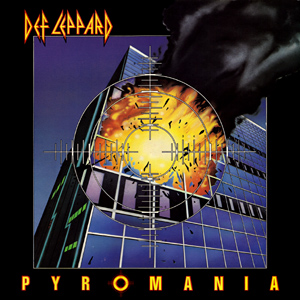
Some may take umbrage at the notion of including Def Leppard in the category “heavy metal,” but for Pyromania, at least, they deserve it. And the genre can thank them for it.
Released in 1983, it was one of a number of albums that pushed heavy metal into the mainstream. Leppard, along with Iron Maiden and Judas Priest, was part of the New Wave of British Heavy Metal, but while Maiden and Priest had core audiences in the U.K. and scattered across North America, it was Leppard that got Americans and Canadians to wear Union Jacks.




